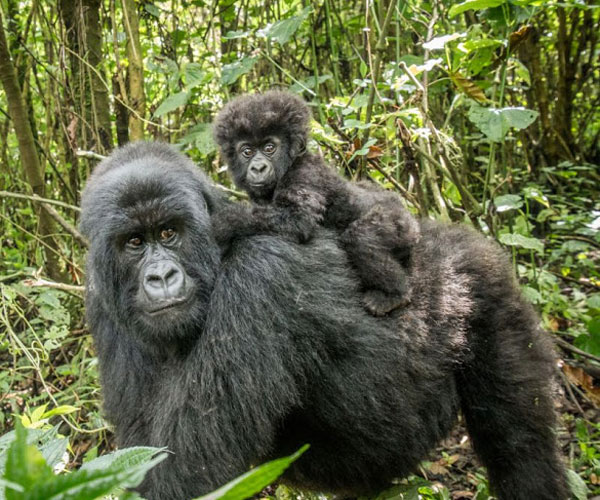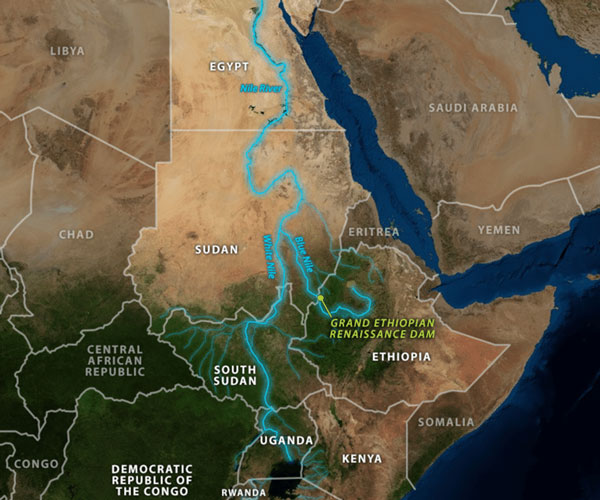What skills have AAAS-TWAS Science Diplomacy alumni gained? To name just a few: Negotiation skills, cooperation with policymakers, how to present advice at high-level meetings, leadership skills, and the ability to attract more funds for projects of global interest. This is what the alumni reported at the first TWAS Science Diplomacy Alumni Review Meeting.
The event, held from 9 to 12 November, was convened virtually and designed to gauge the impact they’d had in their communities and beyond since their attendance in the TWAS Science Diplomacy courses, which have been held since 2013. Among the over 300 participants from some 80 countries who participated in 12 events globally — including summer courses, thematic meetings and regional workshops — 30 were selected to provide their contributions to the first review meeting, on the basis of the impact they reported since attending the original meeting.
"All of these gatherings have aided the important process of mainstreaming science diplomacy in the global South," said TWAS Executive Director Romain Murenzi. "Together, we have worked hard to make scientists and policymakers more aware of the important role of science in policymaking and diplomacy, and how important it is for both the scientific and diplomatic communities to engage one another."
The fields where science diplomacy may leave an impression are countless: it's a powerful tool available to governments, scientists and policymakers to solve many of the world's urgent challenges. Education and training in this field are of the essence, as well as knowledge delivery. Together they may also play a role in the peace-building process across nations.
One example is the Virunga National Park, a UNESCO world heritage site famous for its incredibly rich biodiversity that includes the endangered mountain gorillas. Rwanda, Uganda and DR Congo share this region and work to preserve its beauty, support the local communities and create new income opportunities respectful of the three countries and their local habits. Such cooperation requires interaction with scientific advisors but also goodwill and expertise in diluting potential conflicts.
The same holds true with the endless dispute surrounding the longest river in the world, the Nile, whose long catchment brings 10 nations to constant tensions about political, geographical, ecological and economical matters. These are just two examples where science diplomacy could help. 
The alumni's feedback offered insight into how three kinds of impact — awareness, capacity and action — could be advanced after the courses. Most participants confirmed they were able to increase awareness in their communities, for example through YouTube initiatives featuring scientists, and with policymakers thanks to effective communication and better negotiation skills.
But their impact went beyond that: many of them built new local and international networks and developed a deeper team-oriented attitude. Some promoted initiatives aimed at bridging the gender gap, while others established first-time collaborations between diplomats and young scientists’ networks.
The interactive Zoom discussion offered an overview of their accomplishments. "Thanks to the training I received at the 2019 Train the Trainers Course on Science Diplomacy, I was able to convince my boss to support activities I intended to accomplish," said Glenn Fernandez, an associate professor at the Institute for Disaster Management and Reconstruction, a joint institute of Sichuan University and Hong Kong Polytechnic University. "It took me only one year for us to launch our "Science Diplomacy in Disaster Risk Reduction", an elective course for graduate students in our institute.
Some vibrant comments across the chat helped catch a number of interesting thoughts and suggestions for future cooperation. Nyangi Chacha, a lecturer and head of environmental science and management department at Ardhi University, in Tanzania, suggested drafting an alumni manual indicating how science and diplomacy can feature in different fields.
And Jauad El Kharraz, the research director at the inter-governmental organization Middle East Desalination Research Center in Oman, proposed to capitalize on alumni's experience to provide the international science diplomacy community with translations of educational materials in this field in French, Arabic, Spanish and other languages too. This shows a quality that science diplomats should have: the ability to communicate across borders and engage in international cooperation for a common goal.
"TWAS's science diplomacy activities have gone from strength to strength over the past few years, and it is heartening to know that many of our alumni have been active in their own rights," commented Peter McGrath, the coordinator of TWAS's Science Diplomacy unit. "Thanks to their input during this workshop, we now have a lot of food for thought on how we might adapt our programme moving forward and help TWAS maintain its position among the vanguard of organizations active in this field."
Cristina Serra

